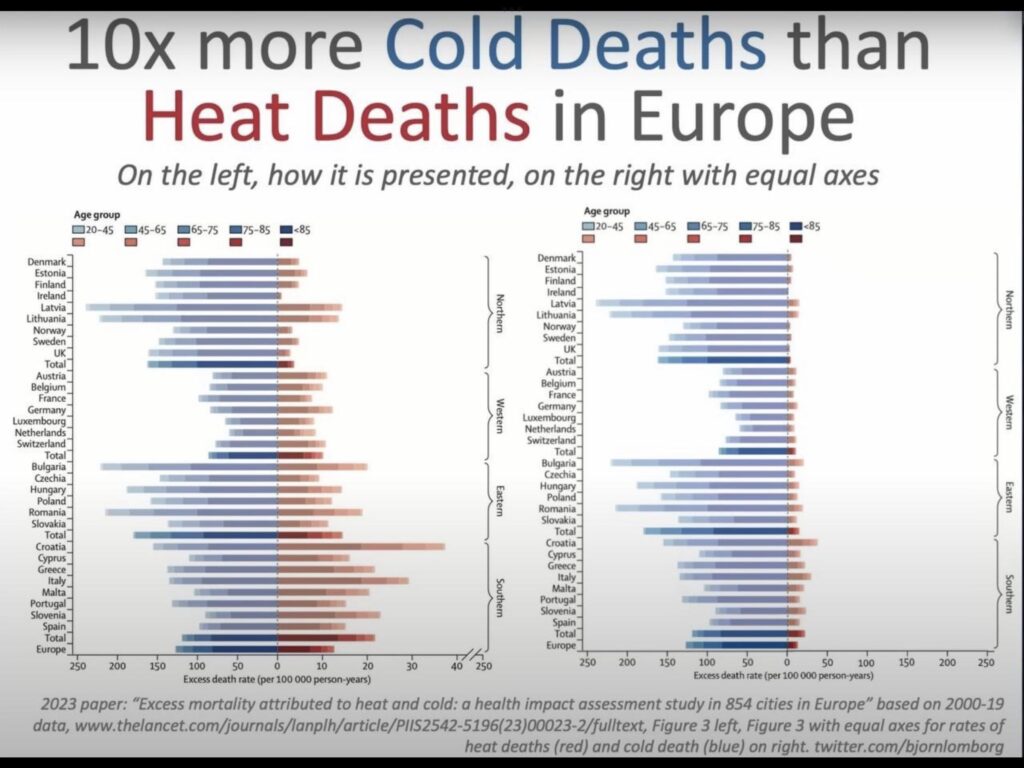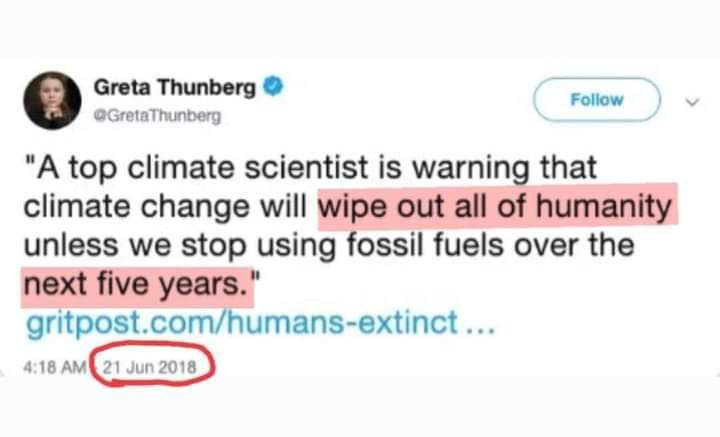Shocking details of corruption and suppression in the world of peer-reviewed climate science have come to light with a recent leak of emails. They show how a determined group of activist scientists and journalists combined to secure the retraction of a paper that said a climate emergency was not supported by the available data. Science writer and economist Dr. Roger Pielke Jr. has published the startling emails and concludes: “Shenanigans continue in climate science, with influential scientists teaming up with journalists to corrupt peer review.”
|
|||||
|
But now, Facebook is censoring accurate information about the relationship between industrial wind energy development and the increase in whale deaths off the East Coast. Yesterday, Facebook and Instagram censored my post linking whale deaths to wind energy off the East Coast of the United States. The censorship came in the form of a “FactCheck.org” article from March 31, 2023, which relied entirely on U.S. government sources. The censorship came on the exact same day that Public and Environmental Progress released a new documentary, “Thrown To The Wind,” which proves that the FactCheck.org article is false. We are told climate change is a crisis, and that there is an “overwhelming scientific consensus.” “It’s a manufactured consensus,” says climate scientist Judith Curry in my new video. She says scientists have an incentive to exaggerate risk to pursue “fame and fortune.” She knows about that because she once spread alarm about climate change. … which will come as a shock to no one here 😉 “Really, think about this: A 4.6 billion-year-old planet with an 8000-mile diameter, with a molten core (heat, etc.), with an atmosphere that is only 50 miles/240,000ft thick (being rather generous), that orbits a star only 93 million miles away with 330,000 times the earth’s mass and that emits enough radiation to burn your naked ass in 30 minutes, is having its weather unalterably changed over the course of the next 5/10/15 years (whatever it is now) by the presence of a weak greenhouse gas, CO2, that happens to now be at its lowest level in damn near the entire history of the planet — a history punctuated by global glaciations while that weak greenhouse gas was far higher than it is now — and that also happens to be the basis of plant life (and therefore atmospheric oxygen), a gas whose greenhouse effect is dwarfed by that of water vapor (on a planet with a surface area that consists of 70% water), and that geologically is currently in an interglacial period. The models that generated this political bullshit have predicted nothing correctly — not sea level change, polar ice cover, or weather.” – Mark Rippetoe. Mr Rippetoe is a strength training coach, based in Wichita Falls, Texas, and a pioneering figure in what is called barbell weight training. (Full disclosure: I use his methods and have got results.) Here he is in full Texan “growl” mode here. He’s also, in my view, very funny and a real character. We need more like him. “One of the few sensible things Noam Chomsky ever said was that if you want to understand the world, read the New York Times backwards; that is, start at the end of the story and read up.” – Steven F Hayward, making this comment in a long and damning critique of “climate crisis” viewpoints and suppressors of dissent. (Thanks to Instapundit for the pointer.) The Lancet published the chart on left with a different X-Axis to downplay fact that cold causes ten times more deaths than heat in Europe. Björn Lomborg corrected that with the chart on right.  “How many environmental justice majors does it take to calculate the CO2 emissions of a light bulb? This isn’t a joke. Businesses now employ scads of college grads to do this. For years America’s political class has lamented that too many college grads are working in low-paying jobs that don’t require post-secondary degrees. The diversity, equity and inclusion and environmental, social and governance industries—DEI and ESG, respectively—are solving for this problem while creating many others. In the modern progressive era, young graduates are finding remunerative employment as sustainability coordinators, DEI officers and “people partners.” Instead of serving up pumpkin soy lattes, they’re quantifying corporate greenhouse gas emissions and ensuring employers don’t transgress progressive cultural orthodoxies.” – Allysia Finley, Wall Street Journal ($). “If we don’t learn from the Dutch eco quagmire we might end up with Farmer Clarkson as PM”, warns the Times. Jeremy Clarkson is a bit too much of a Remainer for my political tastes, but we could do a lot worse. But Robert Colvile’s article is not really about Britain’s most famous petrolhead. It is about the slow but relentless growth in the scope of a law for which nobody voted, Council Directive 92/43/EEC on the Conservation of natural habitats and of wild fauna and flora, a.k.a. the “EU Habitats Directive”.
As the article points out, Brexit has not prized the UK loose from these laws, although it has made it less inconceivable that one day we might be.
“Switching transport to electric in a short timescale will inevitably mean buying Chinese. Are we really about to force ourselves to become even more reliant on a totalitarian regime that stamps out freedom in Hong Kong, commits genocide against the Uighurs, threatens war on Taiwan and refuses to be transparent about how a pandemic began near its leading virus laboratory?” Just Stop Oil march gets hijacked by stag-do leaving protesters furious Video courtesy of the Daily Mail via Instapundit. The Mail writer reveals an unexpected talent for understatement:
The cancellation of eminent science writers and statisticians like Dr. Whitehouse and Professor Fenton for ‘wrongthink’ highlights the ever-shrinking boundaries of the discourse around science and medicine and the unwillingness of science’s gatekeepers to challenge groupthink and politically sensitive dogmas. As Dr. Whitehouse says, “science thrives on debate and scrutiny”. Silencing those who challenge prevailing orthodoxies was the approach favoured by the Catholic church in 17th Century Italy and is completely at odds with the scientific method. I used to read every issue of New Scientist ‘back in the day’ but it has been a bastion of approved high-status groupthink for many years, suitable for cat tray liner only. |
|||||

All content on this website (including text, photographs, audio files, and any other original works), unless otherwise noted, is licensed under a Creative Commons License. |
|||||



